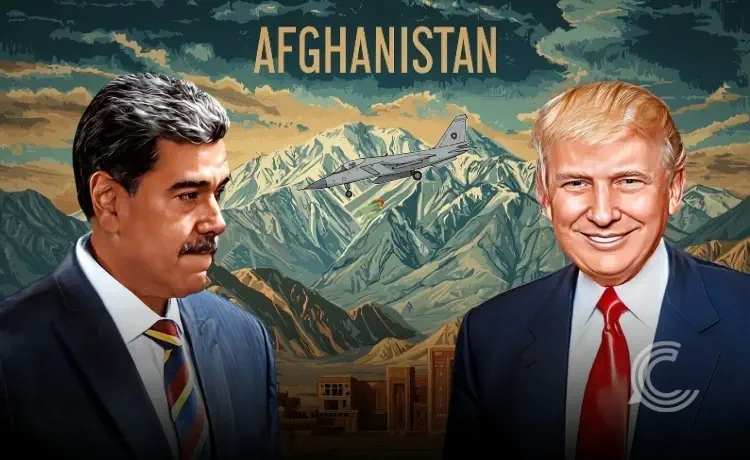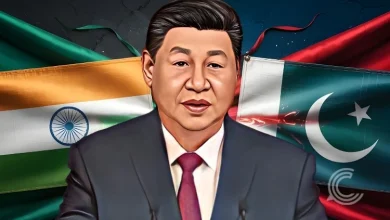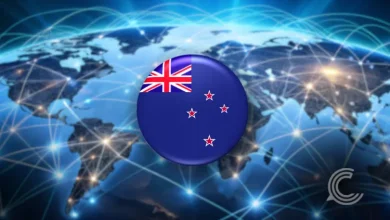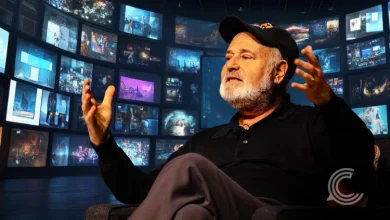Why Venezuela’s Maduro Warns Trump Against a ‘Forever War’ Approach

Key Points:
- The world’s largest aircraft carrier, the USS Gerald R. Ford, and its strike group have entered the US Southern Command’s area of responsibility, a massive escalation in the regional military build-up
- Maduro explicitly called on Trump to “make peace, not war,” fearing a prolonged and unjust military conflict on the continent
- The US justifies its actions as an expanded counter-narcotics campaign, leading to deadly airstrikes on alleged drug-smuggling vessels, while Caracas views it as an effort at regime change
Venezuelan President Nicolás Maduro is actively urging US President Donald Trump to step back from an escalating military posture in the Caribbean, warning against an entanglement resembling the “forever war” in Afghanistan.
The Shadow of Afghanistan
Venezuelan President Nicolás Maduro delivered a pointed and dramatic plea to the Trump administration late Thursday, asking the US to avoid plunging the hemisphere into a protracted conflict similar to the two-decade-long engagement in Afghanistan. Speaking outside the Miraflores presidential palace in Caracas, Maduro declared, “No more forever wars. No more unjust wars. No more Libya. No more Afghanistan. Long live peace,” as reported by The Guardian.
This warning came amidst a significant intensification of US military activity near Venezuela’s borders. For Maduro and his allies, the US actions are not a drug interdiction effort but a campaign to destabilize his government and force regime change. He has repeatedly accused the US of “fabricating a new eternal war” against his nation. The escalating Venezuela Tensions create a volatile geopolitical environment.
US Naval Power and ‘Operation Southern Spear’
The dramatic rhetoric from Caracas immediately followed a crucial development in the Caribbean, the arrival of the world’s largest aircraft carrier, the USS Gerald R. Ford. This nuclear-powered warship, carrying thousands of sailors and dozens of tactical aircraft, and its accompanying strike group have entered the US Southern Command’s area of responsibility, which includes the waters off Venezuela’s coast.
While the US Navy stated the deployment would “bolster US capacity to detect, monitor, and disrupt illicit actors and activities.” Venezuelan Defense Minister Vladimir Padri o López responded by announcing a “massive deployment” of the country’s military, including land, sea, and air assets, placing the entire military arsenal on full operational readiness. The US deployment marks the largest military presence in the region in decades, stirring echoes of the 1989 Panama invasion.
Adding to the pressure, US Defense Secretary Pete Hegseth announced “Operation Southern Spear” on social media, vowing to purge the Americas of “narco-terrorists”. Though Hegseth provided few details, the announcement serves as a headline-grabbing move to rebrand the Trump administration’s pressure campaign, which has already involved a series of deadly strikes on alleged drug smuggling boats in the Caribbean and Pacific. These strikes have reportedly killed over 75 people since September, raising serious concerns among critics and human rights groups over the legal justification and civilian casualties.
Drug War or Regime Change? The Main Conflict
The central dispute revolves around the true intent behind the aggressive US military campaign. The Trump administration publicly maintains the build-up is purely a counter-narcotics operation targeting drug trafficking and transnational criminal organizations. The US has specifically accused the Maduro government, without providing public evidence, of harboring drug traffickers and being complicit with criminal gangs.
In a televised address, Maduro strongly refuted these claims, asserting that “Venezuela is a country that does not produce cocaine leaves.” He portrays the US actions as an imperial threat, designed to pressure him into stepping down following a widely disputed election. Many political analysts and regional experts support this view, seeing the increased military pressure as a tactic for regime change. The continued escalation of Venezuela Tensions shows no sign of abating.
The situation remains deeply concerning. With a US carrier group nearby and Venezuela initiating massive counter-mobilization exercises involving an estimated 200,000 troops, the risk of miscalculation or unintended military engagement is acute. Maduro’s appeal against a “forever war” highlights the profound fear in Caracas that the US may expand its counter-narcotics strikes into direct military intervention on Venezuelan soil, transforming a proxy conflict into a full-scale crisis.



